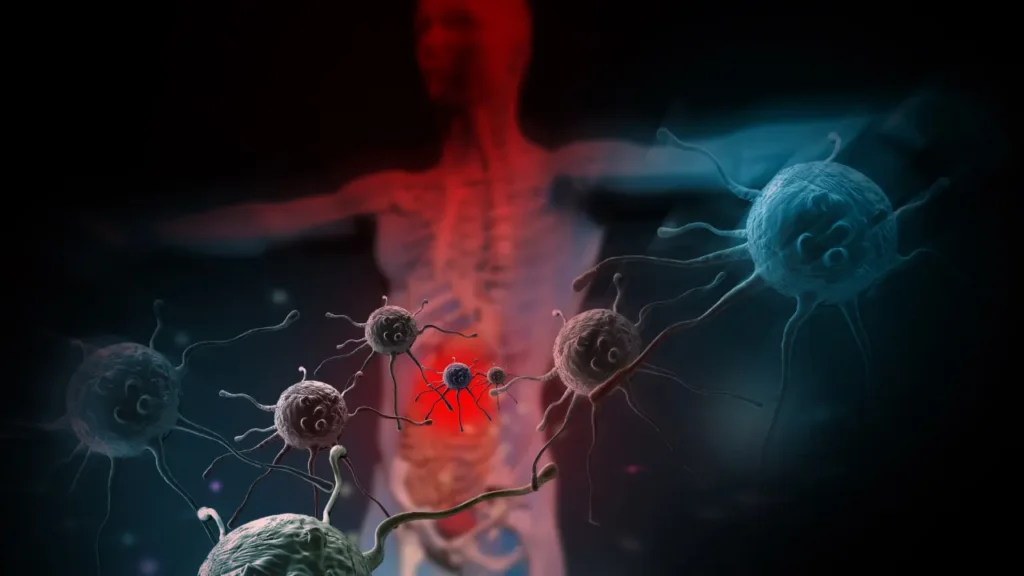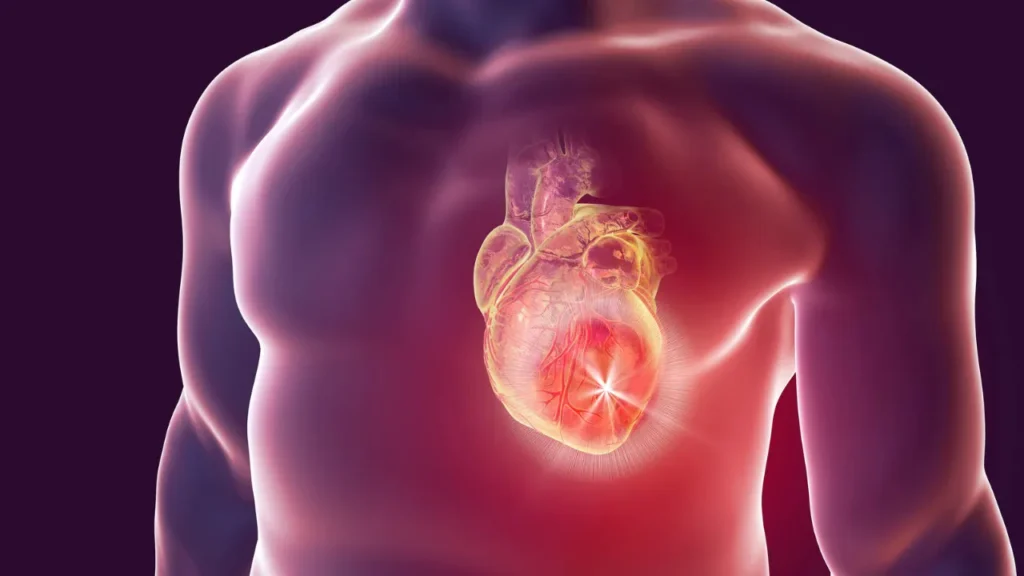There are over 2,000 species of astragalus, a genus of plants in the fabaceae family of legumes, and they can be found worldwide. Traditional Chinese medicine (TCM) has long used astragalus membranaceus, also known as astragalus, Huang Qi, or milkvetch, for its alleged health advantages. Polysaccharides, flavonoids, and saponins, which are among its bio-active components, are primarily responsible for its therapeutic benefits. This article’s goal is to give a thorough examination of astragalus’ nature, health advantages, recommended dosage, side effects, probable drug interactions, and the most ethical ways to use it. We also want to give a thorough analysis of the chemistry and physiological effects of astragalus on the body and brain.
You May Also Like:
5 Great Nootropic Herbs for Focus and Mental Clarity
5 Great Nootropic Herbs for Energy, Focus, and Productivity
Astragalus: Benefits, Dosage, Side Effects, Drug Interactions, And Other Important Information is an original (NootropicsPlanet) article.
Nature of Astragalus
Understanding the chemical and physiological properties of astragalus is crucial. Astragalus’s main bio-active components, polysaccharides, flavonoids, and saponins, are what give it its wide range of health-promoting characteristics. These substances work by activating immune cells, altering cytokines, scavenging reactive oxygen species, and suppressing pro-inflammatory cytokines, among other molecular properties.
Health Benefits of Astragalus
Astragalus has been thoroughly researched for its ability to modulate the immune system. The body’s defense against pathogens is strengthened by the polysaccharide and saponin components of astragalus, which can stimulate immune cells like macrophages, dendritic cells, and natural killer cells. The synthesis of several cytokines, such as interferon-gamma (IFN-), interleukin-2 (IL-2), and tumor necrosis factor-alpha (TNF-), has also been demonstrated to be stimulated by astragalus, supporting the immune response even more.
Astragalus’ flavonoid and saponin components are proven to have strong anti-inflammatory and antioxidant properties. These substances have the ability to remove reactive oxygen species (ROS) and stop the expression of cytokines that promote inflammation, like IL-6 and TNF-. Astragalus can thereby reduce oxidative stress and inflammation, two factors that are crucial in the development of chronic illnesses.

The Chemistry of Astragalus
The various bio-active components of astragalus are principally responsible for its pharmacological properties. The following are the main chemical classes that astragalus contains:
Polysaccharides
The complex carbohydrates known as astragalus polysaccharides (APS) are composed of many monosaccharide units connected by glycosidic linkages. In both in vitro and in vivo experiments, these polysaccharides showed antioxidant, anti-inflammatory, immunomodulatory, and anti-viral effects.
Flavonoids
The phenolic natural substances known as flavonoids are what give fruits, vegetables, and flowers their colors. Isoflavones, such as formononetin, onin, and calycosin, are the flavonoids that Astragalus has in the highest concentration. These substances have anti-inflammatory, anti-cancer, and antioxidant effects.
Saponins
Triterpene saponins called astragalosides are found in astragalus. The most extensively studied saponin, astragaloside IV, exhibits powerful anti-inflammatory, antioxidant, and cardio-protective properties.
Physiological Properties of Astragalus
Astragalus exerts its health advantages through physiological properties that entail intricate interactions between the plant’s bio-active components and multiple biochemical pathways in the body. Immunomodulation, antioxidant activity, anti-inflammatory effects, cardiovascular protection, and anti-cancer properties are important pathways.
The impacts of astragalus on the body are significantly influenced by immunomodulation. The body’s defense against pathogens is strengthened by the polysaccharide and saponin components of astragalus, which stimulate immunological cells like macrophages, dendritic cells, and natural killer cells. Astragalus also increases the synthesis of certain cytokines, such as tumor necrosis factor-alpha (TNF-alpha), interferon-gamma (IFN-gamma), and interleukin-2 (IL-2). This further strengthens the immune system.
Astragalus also demonstrates strong antioxidant action through the flavonoid and saponin components in it. Reactive oxygen species (ROS) are scavenged by these substances, preventing oxidative cell damage and lowering the risk of chronic illnesses. Since oxidative stress is a prominent factor in endothelial dysfunction and atherosclerosis, astragalus’ antioxidant properties also contribute to its cardiovascular advantages.
Another important way that astragalus promotes general health is through its anti-inflammatory properties. Its bio-active substances can prevent the activation of nuclear factor-kappa B (NF-B), a transcription factor involved in inflammatory reactions, as well as the expression of pro-inflammatory cytokines like IL-6 and TNF-. This anti-inflammatory effect could support astragalus’ medicinal potential in situations like chronic inflammation.

Optimal Dosage of Astragalus
The best amount of astragalus to take varies on a number of variables, including your age, health, and the formulation being used. Astragalus is often taken four to thirty grams of dried root per day, or 500 to 1,000 milligrams of a standardised extract containing at least 16% polysaccharides and 0.2% flavonoids. Before starting an astragalus supplementation regimen, it is imperative to speak with your healthcare provider, especially if you have any pre-existing medical conditions or are taking other medications.
Side Effects of Astragalus
When taken within the suggested dosage ranges and in moderation, astragalus is usually regarded as safe. However, some people could develop moderate gastrointestinal symptoms such as bloating, abdominal pain, and diarrhea. Astragalus has occasionally been linked to hypertension, hypokalemia (low potassium levels), and allergic responses. Astragalus supplementation should be avoided by pregnant and nursing women due to a lack of safety information in these groups.

Potential Substance Interactions with Astragalus
Certain drugs and substances can interact with astragalus, which could result in decreased effectiveness or a higher chance of negative consequences. Some of the possible interactions include the following:
Anti-Immunosuppressive Medicine
Due to its immunostimulatory properties, astragalus can offset the negative effects of immunosuppressant drugs like corticosteroids and cyclosporine. Concurrent use ought to be avoided or only be taken while under close medical supervision.
Antiplatelet and Anticoagulant Medications
When combined with anticoagulant or anti-platelet drugs like warfarin, aspirin, or clopidogrel, astragalus can increase the risk of bleeding. Co-administration should be discussed with your healthcare professional, and caution is highly recommended.
Drugs to Lower Blood Pressure
Anti-hypertensive medications can be enhanced by astragalus, resulting in abnormally low blood pressure. Before starting an astragalus supplementation regimen, if you are taking drugs for hypertension, you should speak with your doctor.
Best Responsible Uses of Astragalus
Several recommendations should be followed in order to ensure the safe and successful usage of astragalus as a nutritional supplement:
Efficacy and Uniformity
Select an astragalus supplement that is reliable, high-quality, and standardized to include a certain amount of bio-active ingredients like polysaccharides and flavonoids.
Consultation with a Medical Expert
Before starting an astragalus supplementation regimen, if you have any pre-existing medical issues, or are pregnant or nursing, or take other medication, you should speak with your healthcare provider.
Compliance with Suggested Dosage
Avoid taking astragalus in excess as this may raise the risk of side effects and possible interactions. Instead, adhere to the dose recommendations.
Astragalus:
Conclusion
It is essential to adhere to responsible usage recommendations when taking astragalus as a nutritional supplement, which include selecting a high-quality product, speaking with a healthcare provider, and taking it as directed. By doing this, you can safely take advantage of astragalus’s potential health advantages while lowering your risk of side effects and drug interactions. Astragalus research is growing, and a deeper understanding of its therapeutic potential and properties will assist in guiding professional practice and enhance your health results if you choose to use this traditional herbal treatment as a part of your wellness routine.

References:
- Astragalus: An Ancient Herb With Modern Health Benefits. Retrieved from: https://www.healthline.com/nutrition/astragalus
- Astragalus membranaceus: A Review of its Traditional Uses, Phytochemistry, and Pharmacology. Retrieved from: https://www.hindawi.com/journals/ecam/2018/2702398/ https://www.hindawi.com/journals/ecam/2018/2702398/
- Astragalus polysaccharides: Immunomodulating, Anti-Inflammatory, and Antioxidant Effects. Retrieved from: https://www.ncbi.nlm.nih.gov/pmc/articles/PMC8091891/ https://www.ncbi.nlm.nih.gov/pmc/articles/PMC8091891/
- Cardioprotective Effects of Astragaloside IV Against Myocardial Ischemia/Reperfusion Injury. Retrieved from: https://www.frontiersin.org/articles/10.3389/fphar.2020.00855/full
- The Immunomodulatory Effects of Plant-Derived Polysaccharides: A Review on the Sources, Structure, and Function of Plant Polysaccharides. Retrieved from: https://www.mdpi.com/2076-3921/10/2/272 https://www.mdpi.com/2076-3921/10/2/272
Important Note: The information contained in this article is for general informational purposes only, and should not be construed as health or medical advice, nor is it intended to diagnose, prevent, treat, or cure any disease or health condition. Before embarking on any diet, fitness regimen, or program of nutritional supplementation, it is advisable to consult your healthcare professional in order to determine its safety and probable efficacy in terms of your individual state of health.
Regarding Nutritional Supplements Or Other Non-Prescription Health Products: If any nutritional supplements or other non-prescription health products are mentioned in the foregoing article, any claims or statements made about them have not been evaluated by the U.S. Food and Drug Administration, and such nutritional supplements or other health products are not intended to diagnose, treat, cure, or prevent any disease.


